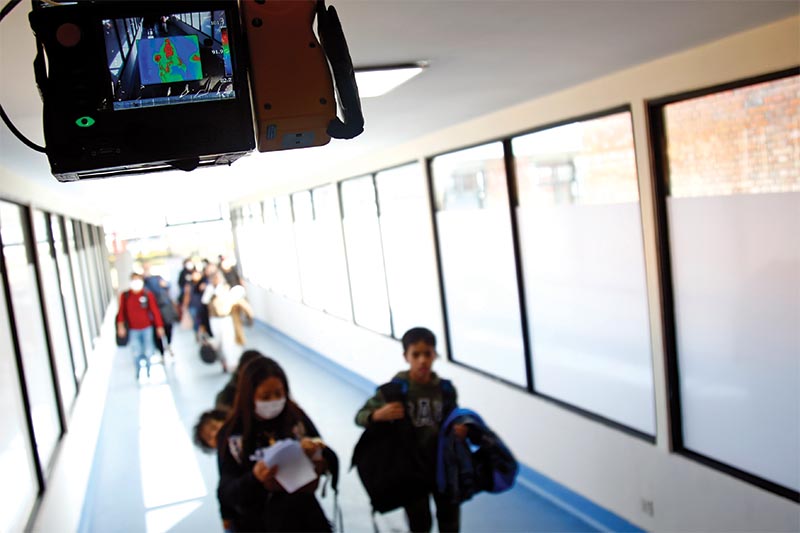Nepal ill-prepared for coronavirus outbreak
Kathmandu, February 25
Nepal has not laid the groundwork to prevent and contain coronavirus outbreak, even as the World Health Organisation today called on countries across the globe to be prepared to fight the virus, which is “literally knocking at the door”.
As of now, the novel coronavirus, which originated in China, does not pose a threat to Nepal, as one 32-year-old Wuhan-returnee, who tested positive over a month ago, does not have any symptoms of the disease. But as the infection has been reported in many countries, Nepal cannot remain complacent, health experts said.
The virus, which was first detected in Wuhan, China, in December, has now spread to 34 countries, killing 2,700 people and infecting 80,238, mostly in China. Even Iran’s deputy health minister tested positive for coronavirus today.
As the outbreak gradually takes the shape of a “pandemic”, many countries have restricted air travel in affected areas and put medical officials and hospitals on standby.
“It is important to strengthen the surveillance system and keep tabs on people entering the country from foreign lands if we are to combat coronavirus spread here,” said Bibek Kumar Lal, director, Epidemiology and Disease Control Division. But Nepal neither has a robust surveillance system nor has it taken effective measures to prevent people who might have been exposed to coronavirus from entering the country.
The government is showing this indifferent attitude at a time when the South Korean experience tells that containing the spread of virus could be a tough nut to crack.
South Korea was well prepared to fight the disease. Yet confirmed coronavirus cases in the country have surged from a few dozen to over 900 within a week. “This calls for restriction of flights from coronavirus affected countries, as Nepal has a relatively weaker health system,” a health official said on condition of anonymity.
Bodies like the WHO are still not in favour of flight or travel restrictions and have recommended individual countries to frame a functional public health emergency contingency plan at points of entry to respond to public health events.
But Nepal, which ranks 111th among 195 countries in the Global Health Security Index, does not have adequate human resources or tools to respond to emergency health situations. First of all, the government’s Epidemiology and Disease Control Division does not have a single epidemiologist to map the source of infection and analyse the situation. Then there is only one tropical medicine physician in the government-run hospitals to treat patients with infection.
What’s more, Nepal has reagents sufficient to conduct only 1,500 coronavirus tests, according to Runa Jha, director at the National Public Health Laboratory. How the laboratory intends to fetch additional reagents in case of an outbreak is not known.
Chinese health authorities have been saying that people infected by the virus may not immediately show any symptom of the disease, but spread it to others. In that case, hospitals need to be well prepared to conduct the tests and quarantine suspected patients.
But Sukraraj Tropical and Infectious Disease Hospital, which the government has designated to treat coronavirus, has dedicated only three intensive care units, five beds for isolation and 40 extra beds to treat patients. “This is not adequate,” said STIDH Spokesperson Anup Bastola, adding, “We also do not have adequate number of health workers, including doctors, to fight the outbreak.”
Worse, the hospital has just two sets of personal protective equipment, which is a must for health workers who deal with coronavirus infected patients. “We have sought more of these gears but they are yet to arrive,” said Bastola. The hospital may need at least 10-15 sets of personal protective equipment per day in case of an outbreak.
“We are going through the WHO protocols and will strengthen the system accordingly,” said Bikash Devkota, spokesperson for the Ministry of Health and Population.






